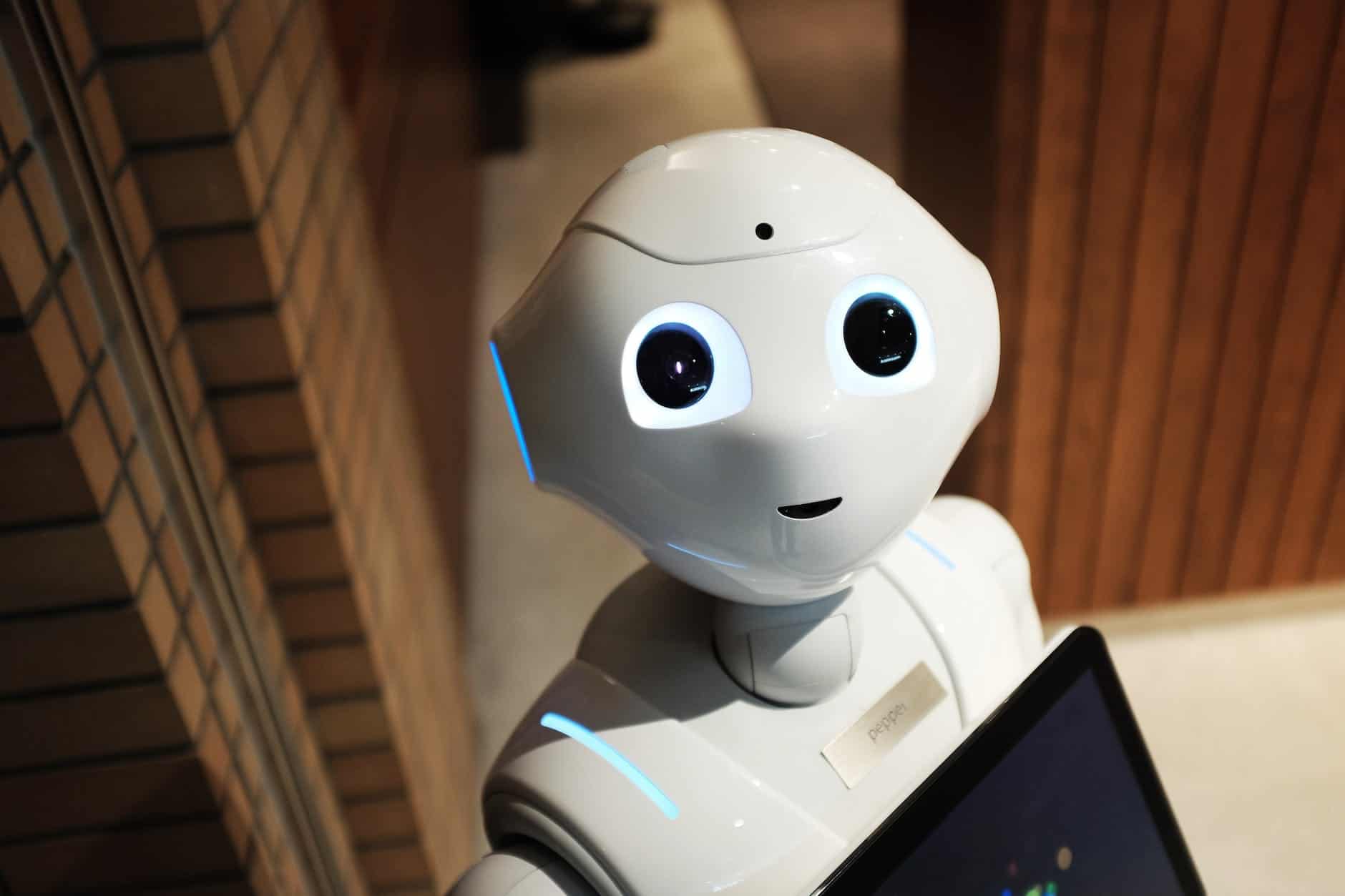The world of music is rapidly changing with the introduction of AI technology. It’s revolutionizing the industry in ways that we could never have imagined, and it feels like a tidal wave of innovation is about to sweep us off our feet.
AI technology has opened up an entirely new realm for creative possibilities, and it’s transforming every aspect of music: from creation to consumption, distribution to education.
With such immense potential on the horizon, one thing is certain – this incredible wave of music technology will change our lives forever.
Understanding AI Technology
By understanding the technology behind AI, we can gain a better grasp on how it’s transforming our world. However, some may be concerned that this could lead to a loss of creativity.
To illustrate this point, let’s create an image of a robot playing alongside a person. Machine learning and sound synthesis are two key components that make up the core of AI technology in music production.
Sound synthesis involves using algorithms to generate sounds from scratch, while machine learning enables the computer to take in data and learn for itself how to compose, arrange, and mix tracks. As these technologies continue to develop, they will become increasingly powerful tools for creating new sounds or compositions with little or no human input.
This could result in some truly innovative pieces being produced as AI finds unique ways to interpret and manipulate sounds. Ultimately, though, it is important to understand both the potential and limits of AI-driven music creation before embracing its impact on our industry.
With thoughtful consideration and proper use of these tools, we can ensure that creativity remains at the forefront as we move into an exciting future filled with possibilities.
Impact on Music Creation
With the dawn of technology, music creation is being transformed in ways unimaginable before!
Audio synthesis and creative bots are revolutionizing how music is composed, produced, and distributed. AI-powered tools, such as Adobe’s Project Voco, allow users to edit audio files by changing words or even entire sentences without compromising on sound quality. Similarly, Google’s Magenta project is using neural networks and machine learning techniques to create original compositions with no human intervention.
These advancements have enabled musicians to explore a variety of musical styles more quickly than ever before. AI-driven technologies can generate fresh musical ideas that might otherwise not be considered by humans, while at the same time providing access to a plethora of new sounds and effects.
Moreover, they can help automate tedious tasks such as beat matching and searching for samples – freeing up valuable creative energy for musicians to focus on other aspects of their work. With all these groundbreaking possibilities available, it’s clear that artificial intelligence will continue to play an increasingly important role in music creation for years to come.
Impact on Music Consumption
Consumption of music is being profoundly altered by the rise of technology, transforming the way we listen and interact with it.
The emergence of digital streaming platforms has created an entirely new market for music consumption, one where users can access vast libraries of music at their fingertips. Music streaming services such as Spotify and Apple Music have revolutionized how people discover, listen to, share, and curate playlists of their favorite songs.
This kind of user-driven curation provides a personalized experience that allows listeners to find new content tailored to their specific taste rather than relying on radio stations or record labels for discovery. The ability to quickly stream high-quality audio and access virtually any track from any artist has transformed the way we consume music.
No longer are listeners limited to what’s playing on the radio or what stores carry in stock – they can search through millions of songs with just a few clicks.
With this newfound power comes immense responsibility: listening habits now shape trends in popular culture more than ever before. It’s up to us as consumers to decide which artists will break into mainstream success by supporting them and sharing their work with others.
Impact on Music Distribution
I’m interested in exploring the impact of AI on music distribution. Specifically, I’d like to examine how AI-powered music search and AI-powered radio are transforming the industry.
Through this discussion, we can gain a better understanding of what these technologies mean for the future of music and its distribution.
AI-powered music search
You’ve likely heard of search engines like Shazam, which use AI to help you find the name of a song you’re trying to identify. In fact, according to the International Federation of the Phonographic Industry, over one billion uses of music search services occurred in 2020 – an increase of more than 50% from 2019!
AI-powered music search is revolutionizing how we discover and engage with music. It offers several advantages over traditional methods:
- Song recommendation: AI-powered search engines can scan vast libraries of songs and recommend titles that match your preferences.
- Lyric analysis: Music search services can analyze lyrics for meaning and offer insight into a song’s message or content.
- Content curation: Automated systems can quickly sort through large amounts of data and organize it based on user preference or other criteria, making it easier for users to find what they’re looking for.
- Personalization: Users can customize their searches by selecting specific genres, artists, or albums so they get results tailored to their tastes.
With these capabilities, AI-powered music search is set to become a powerful tool for discovering new sounds and pushing boundaries in the industry. As such, it has rapidly become an indispensable part of our musical landscape – changing how we access our favorite tunes.
AI-powered radio
With AI-powered radio, you can enjoy a personalized listening experience tailored to your tastes and preferences. Human computer interaction is at the core of this technology, providing users with an intuitive way to curate their own music playlists.
AI-powered radio is rapidly changing music listening trends, making it easier than ever for people to discover new music that they may have otherwise missed. The impact on music education is clear: AI-powered radio offers students access to a vast selection of musical genres and artists from around the world.
It provides them with an unprecedented opportunity to explore different styles and appreciate a variety of sounds that can help expand their understanding of the art form. With this newfound knowledge, students are better equipped to make informed decisions about which songs or albums they want to purchase or listen to in their spare time.
Impact on Music Education
You’ve likely heard how technology is transforming music education, and Artificial Intelligence (AI) is no exception.
AI-powered music tools are becoming increasingly popular in the classroom, allowing students to interact with their learning in a more dynamic way.
With AI-enabled music pedagogy, teachers can create interactive lessons that are personalized for each student’s individual learning style and needs. This allows for more hands-on instruction, as well as a greater focus on critical thinking skills such as problem-solving and creative expression.
Additionally, AI can be used to analyze student performance data, providing teachers with insightful feedback about their teaching methods and curriculum design.
With AI playing an ever larger role in the music education landscape, it’s clear that this technology has the potential to revolutionize how we learn about and perform music.
Frequently Asked Questions
What are some potential risks of using AI in the music industry?
As AI technology continues to become more prevalent in the music industry, there are potential risks that need to be considered.
For example, one of the most pressing issues is the potential for unintended consequences from automated decisions, such as royalty disputes that could arise when algorithms dictate how compositions and recordings should be monetized. This can lead to royalties being divided unequally among artists, or even worse, denied altogether.
Additionally, there is a risk that AI-generated music will replace human composers altogether and lead to an overall decrease in artistic creativity.
To avoid these pitfalls, it’s essential for stakeholders within the music industry to implement safeguards and protocols that ensure AI tools are used responsibly and ethically.
How can AI technology be used to help protect copyrights?
As the use of AI technology grows in the music industry, there’s an increasing need to protect copyrights.
Data privacy and royalty tracking are essential components that can be addressed using AI technology. By automating these processes, it’s possible to effectively monitor copyright infringement. This allows artists and labels to quickly seek legal recourse against any unauthorized use of their music.
Furthermore, AI can be used to develop advanced algorithms that can verify the authenticity of a song or track. In addition, it can identify potential copyright violations in real-time. With this technology being increasingly implemented within the industry, copyrights are being better protected than ever before.
How will AI technology affect the income of music artists?
As AI technology continues to progress and be used in the music industry, there are many implications for music artists.
One major concern is how it will affect their income. AI can help reduce music piracy which allows artists to gain more revenue from their work, but it could also potentially devalue the work of musicians through automated algorithms that create music with no human input.
This could lead to a decrease in pay for artists and have career implications. As such, it’s important for those in the industry to stay informed on the latest developments in AI and how they will impact artist’s careers going forward.
What are the ethical considerations of using AI in the music industry?
As the music industry moves towards integrating AI technology, there are a number of ethical considerations that must be taken into account.
These include artist rights and royalty payments, which can be significantly impacted by AI’s ability to automate processes and generate new musical compositions without needing human input. This raises questions of fairness in terms of compensation for creative work, as well as copyright issues surrounding who owns the rights to these compositions.
Additionally, AI algorithms may privilege certain types of music over others, influencing what is popular and available in the wider marketplace.
It’s important to consider all these factors when introducing AI into any aspect of the music industry.
How does AI technology compare to traditional music production and distribution techniques?
As AI technology continues to advance, it’s poised to change the way music is produced and distributed in comparison to traditional methods.
Automated composition can allow for the creation of complex musical pieces with an efficiency that surpasses traditional techniques.
In addition, streaming royalties can be generated from platforms like Spotify and Apple Music at a much greater rate than physical albums or digital downloads, giving artists more control over their intellectual property and ensuring they receive fair compensation for their work.
The use of AI in the music industry has opened up new possibilities for how we create and consume music, ushering in a new era of innovation and creativity.
Conclusion
AI technology is revolutionizing the music industry in many ways. It has changed the way we create and consume music, as well as how we distribute it and educate ourselves on the subject.
AI allows us to be more creative and efficient with our work, while also enabling us to access a wealth of data with ease. To put it simply, AI is like an orchestra conductor that helps keep all the pieces of our musical world in harmony.
As this technology continues to evolve, it will only continue to shape the future of music for years to come – like a shining beacon guiding us towards new heights of creativity and innovation.










